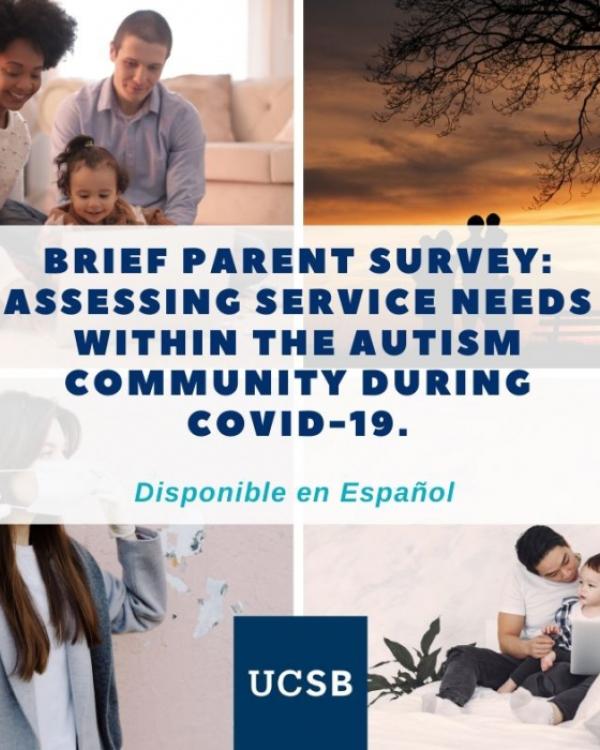
Doctoral students Maria Munoz and Emily Ferguson of the Department of Counseling, Clinical and School Psychology and the Koegel Autism Center are conducting a study to better understand the specific needs and experiences of families across the U.S. with autistic children (aged 2+), adolescents, and adults during COVID-19. Those who fill out this 10-15 minute survey will help the Koegel Center and other autism service providers develop better support services for the autism community during COVID-19 and beyond.
The researchers are looking for participants: if you are 18 years or older and the primary parent/caregiver of a child diagnosed with autism spectrum disorder aged 2 or older, and you are currently living in the same U.S. state as your child/adolescent/adult. The online survey is available in both English and Spanish.
All the information provided for this project will be kept confidential and anonymous. As further incentives, participants will have access to a list of nationwide resources offered alongside the survey and will be entered into a drawing to win 1 out of 10 $25 Amazon Gift Cards.
The Koegel Autism Center is internationally recognized for its innovative autism research and clinical training. The center is part of the University of California, a not-for-profit state institution of higher learning. Led by Center Director Dr. Ty Vernon and Clinical Director Dr. Anna Krasno, the center focuses on the development and implementation of strength-based, motivational interventions and supports for individuals and families affected by autism spectrum disorders. Intervention models developed at the center include the Pivotal Response Treatment (PRT) and the Social Tools And Rules for Teens (START) programs. The center provides diagnostic assessments, intervention services, parent support, and clinical training opportunities through its funded research projects and clinics. It provides research and clinical training to doctoral students in clinical psychology and special education, many of whom have continued on to become highly influential members of the autism research community.